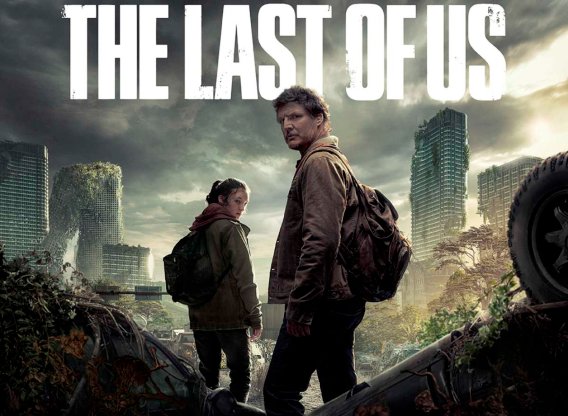Table of Contents
Plot
Welcome To The Last Of Us 2023 – Season 1 Episode 4 Review. Episode 4 of The Last of Us, titled “Please Hold to My Hand,” picks up where the previous episode left off, with Joel (Pedro Pascal) and Ellie (Bella Ramsey) having arrived at the Firefly outpost in Lincoln, Massachusetts. They are reunited with Joel’s brother, Tommy (Gabriel Luna), and they are finally safe from the infected and the raiders.
Joel and Ellie are both relieved to be at the outpost, but they are also aware that their journey is far from over. They need to find the Fireflies’ main headquarters, where Ellie can be cured of the Cordyceps infection.
Tommy tells Joel and Ellie that the Fireflies’ headquarters is located in Salt Lake City, Utah. However, he warns them that the journey will be dangerous. They will need to cross the country through hostile territory, and they will need to be careful to avoid the infected, the raiders, and the government forces.
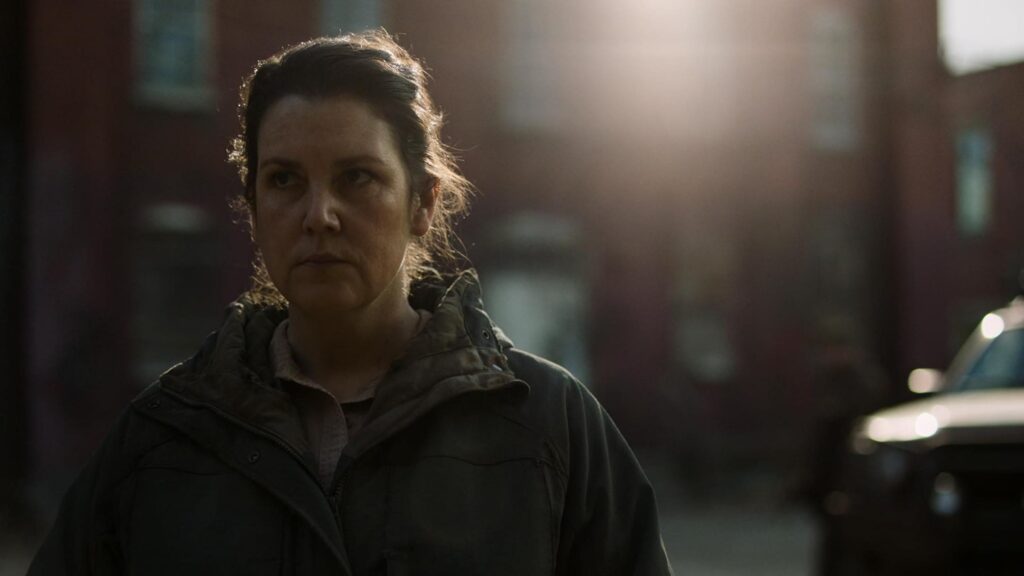
Joel and Ellie are determined to reach Salt Lake City, and they decide to leave the next day. However, before they can leave, they are attacked by a group of raiders.
Joel and Ellie, along with Tommy and the other Fireflies, are able to defeat the raiders, but Tommy is injured in the battle. Joel realizes that Tommy is in no condition to travel, so he decides to leave him at the outpost and continue the journey with Ellie.
Joel and Ellie set off on their journey to Salt Lake City, and they soon realize that the journey will be even more difficult than they expected. They have to cross through a variety of dangerous terrain, including forests, mountains, and cities. They also have to deal with the infected, the raiders, and the government forces.
Along the way, Joel and Ellie learn more about each other. Joel begins to open up to Ellie about his past, and Ellie begins to see Joel as a father figure.
One night, Joel and Ellie are camping in a forest when they are attacked by a group of infected. Joel is able to kill the infected, but he is bitten by one of them.
Joel knows that he is infected, and that he will eventually turn into a Clicker. He decides to keep his infection a secret from Ellie, because he doesn’t want her to lose hope.
Joel and Ellie continue on their journey, but Joel’s condition is worsening. He is becoming weaker and more tired, and he is starting to lose his sense of reality.
One day, Joel collapses from exhaustion. Ellie finds him unconscious and carries him to a nearby abandoned house. She takes care of Joel for several days, but he doesn’t seem to be getting any better.
Ellie is starting to lose hope. She thinks that Joel is going to die, and she doesn’t know what to do.
One night, Joel wakes up and tells Ellie that he is infected. Ellie is devastated, but she tells Joel that she is going to find a cure for him.
The next day, Joel and Ellie leave the abandoned house and continue on their journey to Salt Lake City. They are determined to find a cure for Joel, and they are willing to do whatever it takes to survive.
Action and Direction
Action
The fourth episode of The Last of Us, titled “Please Hold to My Hand”, is a return to the action-packed nature of the first two episodes.
Joel and Ellie being ambushed by a group of Hunters, a ruthless faction that has taken control of the Kansas City quarantine zone.
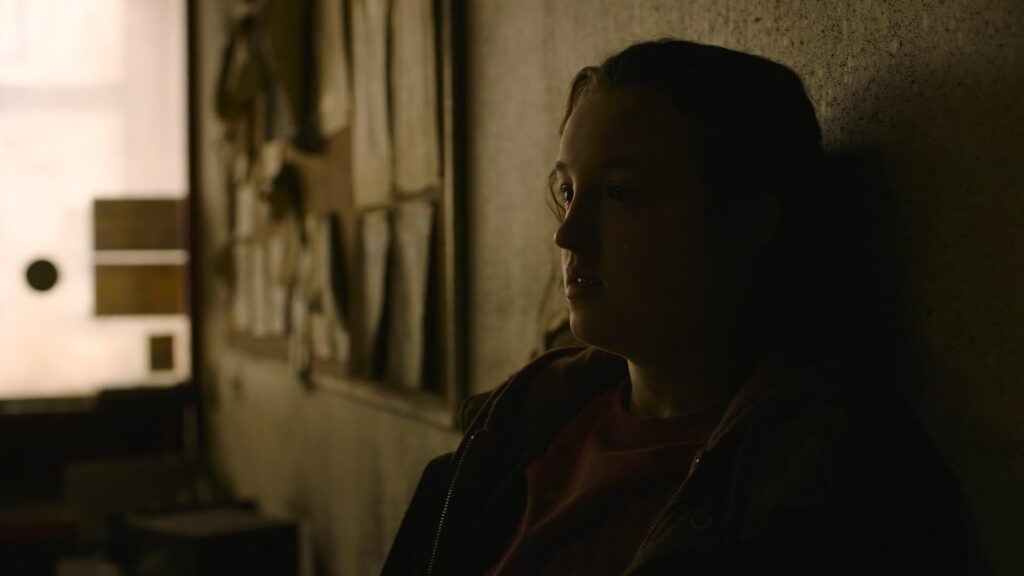
Joel and Ellie having to fight their way through a horde of infected while trying to escape from the city.
Joel and Ellie being held at gunpoint by Henry and Sam, two brothers who are also trying to survive in Kansas City.
The action sequences in the episode are all well-choreographed and exciting. They are also brutal and realistic, reflecting the dangerous and unforgiving world in which Joel and Ellie live.
Direction
The direction of the episode is also excellent. Director Jeremy Webb uses a variety of techniques to create a sense of tension and suspense. For example, in one scene, Joel and Ellie are hiding from the Hunters in a laundromat. Webb uses a series of close-ups and quick cuts to create a sense of claustrophobia and danger.
In another scene, Joel and Ellie are fighting their way through the horde of infected. Webb uses a wide-angle shot to show the scale of the horde and the danger that Joel and Ellie are in.
Webb also uses symbolism to great effect in the episode. For example, the fact that Joel and Ellie are ambushed in a laundromat represents the fact that even the most mundane places can be dangerous in the post-apocalyptic world.
Overall, the action and direction of the fourth episode of The Last of Us are both excellent. The action sequences are intense and exciting, and the direction is masterful, creating a sense of tension and suspense.
Additional thoughts
One of the things that I particularly appreciate about the action and direction in this episode is the way that it reflects the characters’ emotional state. For example, in the scene where Joel and Ellie are fighting their way through the horde of infected, Joel is clearly struggling to cope with the violence and chaos. This is reflected in the way that the scene is shot and edited. The camera is shaky and the cuts are quick, creating a sense of disorientation and confusion.
In contrast, in the scene where Joel and Ellie are held at gunpoint by Henry and Sam, Joel is more in control. This is reflected in the way that the scene is shot and edited. The camera is steady and the cuts are slower, creating a sense of tension and suspense.
Overall, the action and direction in the fourth episode of The Last of Us are both excellent. They are both well-executed and serve the story and characters well.
Character Development
Episode 4 of The Last of Us season 1, titled “Please Hold My Hand,” focuses on the developing relationship between Joel and Ellie. The episode begins with Joel teaching Ellie how to properly hold and shoot a gun. This is a significant moment in their relationship, as it shows that Joel is starting to trust Ellie and to believe in her ability to survive.
Later in the episode, Joel and Ellie are ambushed by a group of raiders. Ellie kills one of the raiders, but she is unable to finish off another one who is injured. Joel steps in and kills the raider, but he is clearly bothered by Ellie’s hesitation.
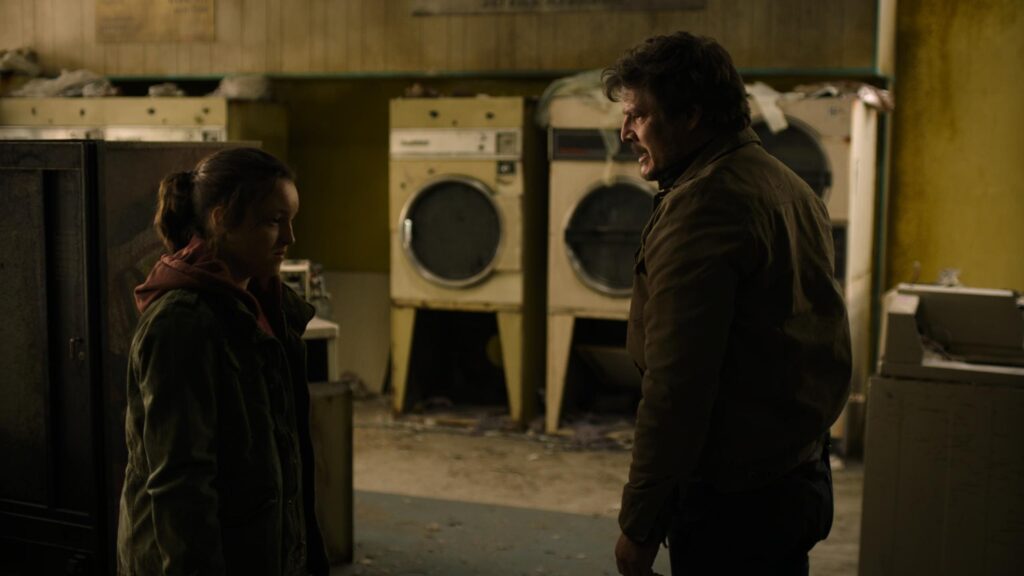
That night, Joel and Ellie have a conversation in which Joel admits that he is worried about Ellie. He tells her that he has lost a lot of people in his life, and he doesn’t want to lose her too. Ellie assures Joel that she is not afraid, and that she is determined to survive.
This conversation further strengthens the bond between Joel and Ellie. It shows that they are starting to trust each other and to open up to each other. It also shows that Joel is starting to see Ellie as more than just a cargo to be delivered. He is starting to see her as a person, and he is starting to care about her.
Another notable character development in episode 4 is the introduction of Kathleen (Melanie Lynskey). Kathleen is the leader of a group of survivors in Kansas City. She is a ruthless and determined woman who is on a mission to avenge the death of her brother.
Kathleen’s character is a departure from the video game, but she is a welcome addition to the show. She is a complex and compelling character, and she adds a new layer of conflict to the story.
Overall, episode 4 of The Last of Us features significant character development for both Joel and Ellie. The introduction of Kathleen also adds a new dimension to the story and raises the stakes for Joel and Ellie’s journey.
Visual Effects and Cinematography
The visual effects and cinematography of the fourth episode of the first season of the web series The Last of Us are both excellent. The episode is set in a variety of locations, including a post-apocalyptic city, a forest, and a farmhouse. The VFX team did a masterful job of creating believable and immersive environments, and the cinematography is used to create a sense of tension, suspense, and intimacy.
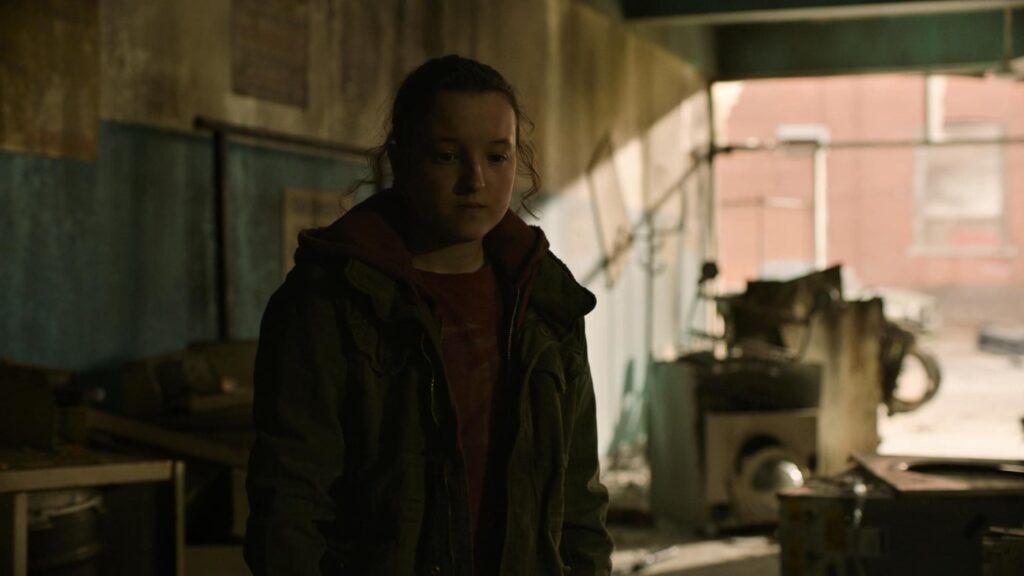
Here are some specific examples of how the visual effects and cinematography are used to enhance the episode:
Post-apocalyptic city: The opening scene of the episode shows Joel and Ellie driving through a post-apocalyptic city. The city is overgrown with vegetation and abandoned buildings are everywhere. The VFX team did a great job of creating a believable and desolate city.
Forest: Joel and Ellie also travel through a forest in the episode. The forest is dense and dark, and it creates a sense of danger and claustrophobia. The VFX team used a variety of techniques to create the forest, including CGI and practical effects.
Farmhouse: Joel and Ellie eventually arrive at a farmhouse, where they meet Bill and Frank. The farmhouse is a contrast to the harsh world outside, and it provides a sense of safety and security. The cinematography is used to create a warm and inviting atmosphere in the farmhouse.
In addition to the above, the episode also uses visual effects and cinematography to create a sense of tension, suspense, and intimacy. For example:
Tension: In one scene, Joel and Ellie are walking through the forest when they are ambushed by infected creatures. The camera is positioned close to the characters, and the viewer can see the fear and determination on their faces. This creates a sense of tension and suspense.
Suspense: In another scene, Joel and Ellie are hiding in the farmhouse from a group of raiders. The camera is positioned outside the farmhouse, and the viewer can see the raiders searching for them.
Intimacy: In one scene, Joel and Ellie are talking on the porch of the farmhouse. The camera is positioned close to their faces, and the viewer can see the bond that is forming between them.
Overall, the visual effects and cinematography in the fourth episode of The Last of Us are both outstanding. They help to create a believable and immersive world, and they also help to tell the story in a compelling and emotional way.
Here are some additional thoughts on the visual effects and cinematography of the episode:
The episode uses a variety of camera angles and movements to create a sense of tension and suspense. For example, in one scene, Joel and Ellie are walking through the forest when they are ambushed by infected creatures. The camera is positioned close to the characters, and it shakes and pans as they try to fight off the creatures.
The episode also uses color to create a sense of atmosphere. For example, the post-apocalyptic city is often bathed in a blue or gray light, which creates a sense of coldness and desolation. The farmhouse, on the other hand, is often bathed in a warm yellow light, which creates a sense of warmth and safety.
The episode also uses sound to create a sense of immersion. For example, the viewer can hear the infected creatures growling and hissing in the forest. The viewer can also hear the wind blowing through the trees and the birds chirping. This helps to create a believable world that the viewer can feel like they are a part of.
Overall, the visual effects and cinematography in the fourth episode of The Last of Us are both top-notch. They help to create a believable and immersive world, and they also help to tell the story in a compelling and emotional way.
World-Building
The world-building in episode 4 of The Last of Us season 1 is further expanded upon as Joel and Ellie continue their journey to the Fireflies. The episode introduces new locations and characters, and it also provides more insight into the history of the world and the infected.
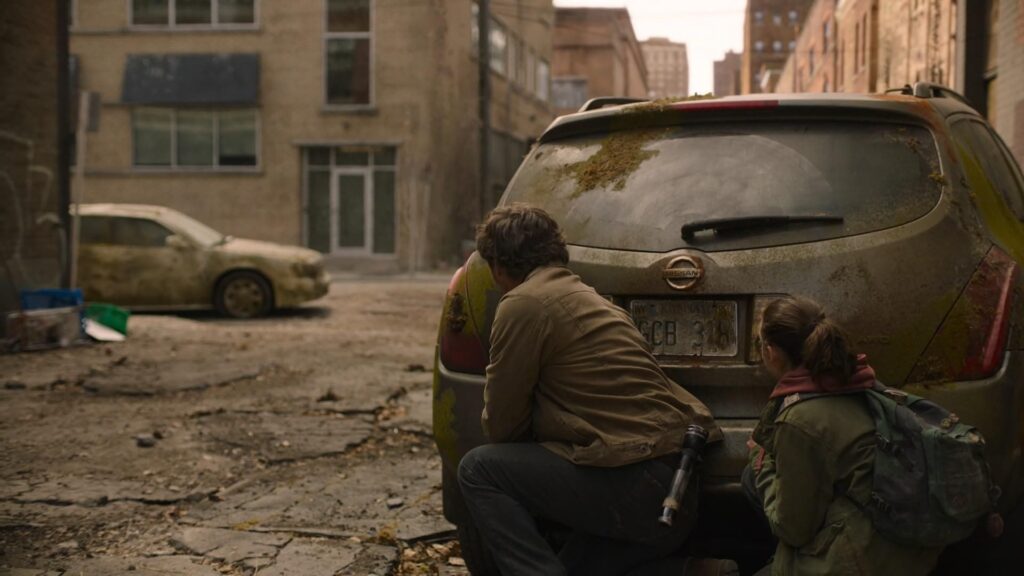
Pittsburgh
Joel and Ellie arrive in Pittsburgh, a city that has been overrun by the infected. The city is in ruins, and the streets are littered with debris and abandoned vehicles. Joel and Ellie must navigate the city carefully, avoiding the infected and other dangers.
The Hunter Group
Joel and Ellie encounter a group of hunters in Pittsburgh. The hunters are survivors who have turned to violence and cannibalism in order to survive. They are a threat to Joel and Ellie, and they must be dealt with carefully.
The Fireflies
Joel and Ellie are searching for the Fireflies, a group of scientists who are working to find a cure for the infection. The Fireflies are headquartered in a secret location, and Joel and Ellie must find them in order to continue their journey.
The History of the Infection
Episode 4 also provides more insight into the history of the infection. Bill tells Joel that the infection was created by a mutated strain of the Cordyceps fungus. The fungus spreads through the air and takes over the host’s brain. The infected are aggressive and dangerous, and they will attack anything that moves.
The Infected
The episode also introduces a new type of infected: the Bloater. Bloaters are infected that have been infected for a long period of time. They are covered in fungal growths and are extremely dangerous. Joel and Ellie must be careful to avoid Bloaters, as they are very difficult to kill.
Overall, episode 4 of The Last of Us does a great job of expanding upon the world-building of the series. It introduces new locations, characters, and threats, and it also provides more insight into the history of the infection and the infected.
In addition to the above, here are some other details about the world-building in episode 4:
The episode shows us that the world is still recovering from the pandemic. There is a shortage of food and resources, and the infrastructure is in ruins.
People are still struggling to trust each other. Joel and Ellie are constantly on the lookout for danger, and they are hesitant to trust anyone they meet.
The infected are still a major threat. Joel and Ellie must be careful to avoid them, and they must be prepared to fight if necessary.
Overall, the world-building in The Last of Us is very believable and immersive. It is a world that is both dangerous and beautiful, and it is a world that is full of complex and interesting characters.
Music and Sound Design
The music and sound design of The Last of Us episode 4 of season 1 is just as masterful as that of the previous episodes. The episode features a mix of original music composed by David Fleming and Gustavo Santaolalla, as well as licensed music from artists such as Hank Williams and Lotte Kestner.
The original score is particularly effective in setting the mood and tone of the episode, with its use of strings, piano, and guitar to create a sense of melancholy, nostalgia, and hope. The licensed music is also used to great effect, with songs such as “Alone and Forsaken” by Hank Williams and “True Faith” by Lotte Kestner providing a contrast to the darker original score and helping to evoke specific emotions in the viewer.
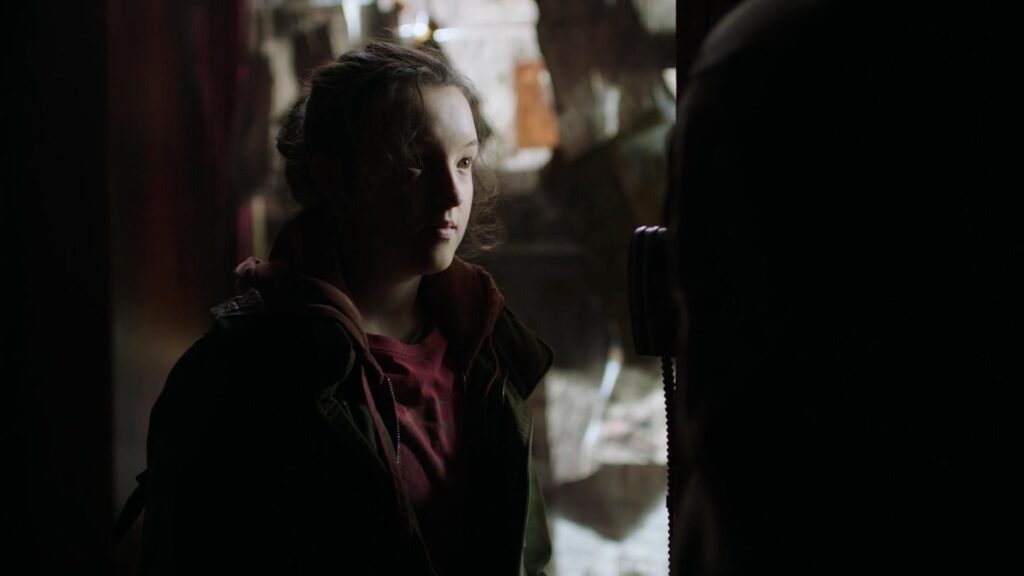
The sound design of the episode is equally impressive, with a focus on realism and immersion. The viewer can hear the creaking of floorboards, the rustling of leaves, and the distant sound of birdsong, all of which help to create a sense of place and time.
The sound effects are also used to great effect to create suspense and tension, such as the sound of a twig snapping or a door creaking open.
One of the most notable aspects of the sound design is the use of silence. In some scenes, the only sound is the breathing of the characters, which helps to create a sense of intimacy and vulnerability.
Here are some specific examples of how the music and sound design are used to enhance the episode:
In the opening scene of the episode, as Joel and Ellie drive through the countryside, the music is slow and atmospheric, creating a sense of peace and tranquility.
When Joel and Ellie encounter the raiders, the music becomes tense and suspenseful, reflecting the danger that they are in.
In the scene where Joel and Ellie are trapped in the basement, the music is dark and claustrophobic, reflecting the characters’ sense of despair.
In the final scene of the episode, as Joel and Ellie walk away from the burning cabin, the music is melancholic and reflective, reflecting the losses that they have experienced.
The music and sound design of The Last of Us episode 4 of season 1 is another example of how these elements can be used to create a truly immersive and emotionally resonant experience for the viewer. It is a testament to the skill and artistry of the composers and sound designers involved in the production.
In addition to the above, I would also like to mention the following:
The use of diegetic music in the episode is particularly effective. For example, when Joel and Ellie are driving through the countryside, the song “Alone and Forsaken” by Hank Williams is playing on the radio. This song helps to set the mood of the scene and also reflects the characters’ feelings of isolation and loneliness.
The sound design of the infected is particularly disturbing. Their clicks and wheezes are truly unsettling, and they help to create a sense of dread and suspense whenever the infected are on screen.
Overall, the music and sound design of The Last of Us episode 4 of season 1 is another masterclass in how to use these elements to create a truly immersive and emotionally resonant experience for the viewer. It is one of the things that makes the show so special and memorable.
Pacing and Episode Structure
Pacing:
The pacing of The Last of Us Season 1 Episode 4, “Please Hold My Hand,” is much faster than the previous episode. This is because the episode focuses on Joel and Ellie’s journey to Pittsburgh, and they encounter a lot of obstacles along the way.
The episode begins with Joel and Ellie leaving Bill’s town. They travel through a forest, but they are attacked by a group of bandits. Joel and Ellie manage to defeat the bandits, but Joel is injured in the battle.
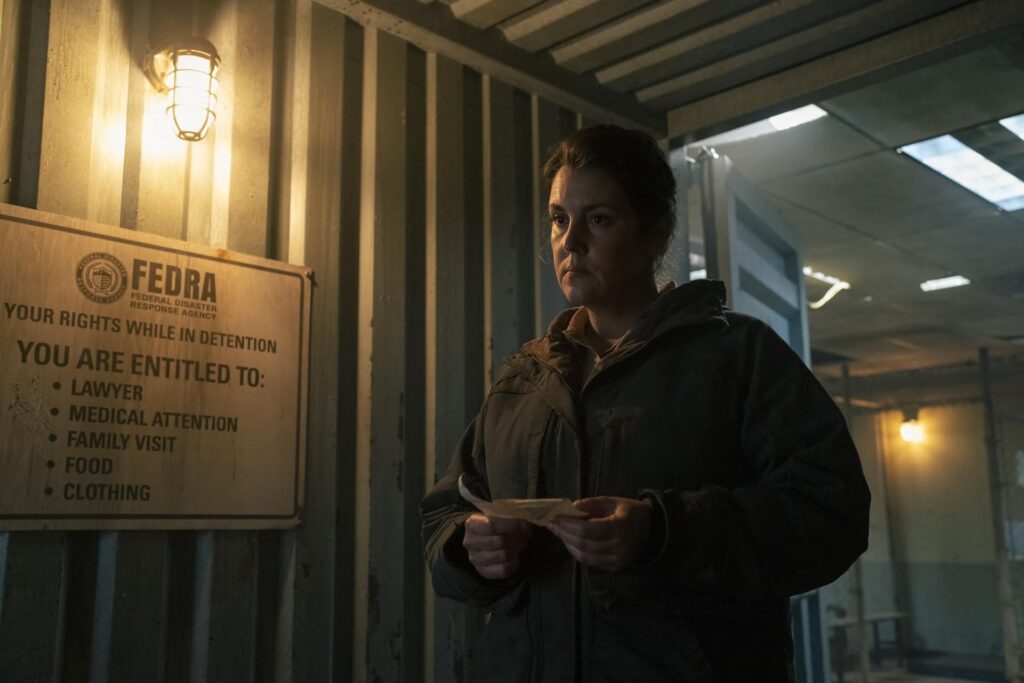
Joel and Ellie continue their journey, but they are soon ambushed by a group of infected. Joel and Ellie manage to escape, but they are now lost in the forest.
Joel and Ellie eventually find a road, and they follow it to a nearby town. They find a house to stay in, but they are soon discovered by a group of infected. Joel and Ellie manage to escape again, but they are now on the run.
The episode ends with Joel and Ellie being chased by a group of infected. They manage to escape, but they are now exhausted and wounded.
Episode Structure:
The episode is structured around a series of action sequences. The episode begins with Joel and Ellie being attacked by a group of bandits, and it ends with them being chased by a group of infected. In between, Joel and Ellie are constantly on the move, and they encounter a variety of obstacles along the way.
The episode’s structure is very effective, as it keeps the viewer engaged and on the edge of their seat. The action sequences are well-choreographed and exciting, and the stakes are always high.
Overall, the pacing and episode structure of The Last of Us Season 1 Episode 4 are very well done. The episode is fast-paced and exciting, and it keeps the viewer engaged from beginning to end.
Comparison to Episode 3:
The pacing and episode structure of Episode 4 are very different from those of Episode 3. Episode 3 is slow-paced and focuses on character development, while Episode 4 is fast-paced and focuses on action.
This difference in pacing and tone is very effective, as it allows the show to explore different aspects of the story and characters. Episode 3 gives us a deeper understanding of Bill and Frank’s relationship, while Episode 4 gives us a better understanding of Joel and Ellie’s journey and the challenges they face.
Both episodes are excellent, but they are very different from each other. This shows that The Last of Us is a show that is not afraid to experiment with different pacing and tone.
Originality and Innovation
The Last of Us, episode 4 of season 1, titled “Please Hold to My Hand”, is a faithful adaptation of the source material, but it also introduces a number of original elements.
One of the most notable original aspects of the episode is the character of Kathleen (Melanie Lynskey), the leader of a revolutionary group in Kansas City. Kathleen is a complex and compelling character who is driven by a desire for revenge. She is also a ruthless and effective leader, and she poses a significant threat to Joel and Ellie.
Another original element of the episode is the subplot involving Henry (Lamar Johnson) and Sam (Keivonn Montreal Woodard), two brothers who are trying to survive in Kansas City. Henry and Sam are sympathetic characters who are caught up in a dangerous situation. Their relationship with Joel and Ellie adds an extra layer of complexity and emotional weight to the episode.
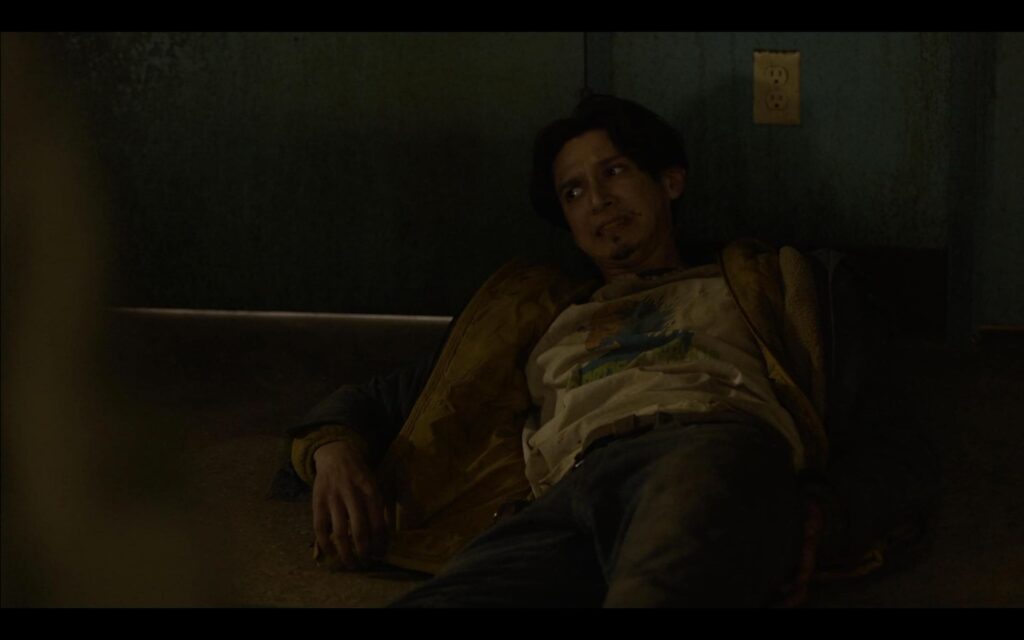
In addition to these original characters and subplots, episode 4 also introduces a number of new ideas and themes that were not explored in the video game. For example, the episode explores the concept of community and the importance of working together in a post-apocalyptic world. It also examines the nature of violence and the cycle of revenge.
Overall, episode 4 of The Last of Us is a well-written and well-acted episode that faithfully adapts the source material while also introducing a number of original elements. It is a must-watch for fans of the video game, as well as anyone who enjoys well-made television.
Here are some specific examples of the originality and innovation of episode 4:
The character of Kathleen. Kathleen is a complex and compelling villain who is driven by a desire for revenge. She is also a ruthless and effective leader, and she poses a significant threat to Joel and Ellie.
The subplot involving Henry and Sam. Henry and Sam are sympathetic characters who are caught up in a dangerous situation. Their relationship with Joel and Ellie adds an extra layer of complexity and emotional weight to the episode.
The exploration of the concept of community. The episode explores the importance of working together in a post-apocalyptic world. This is a theme that is not as prominently explored in the video game.
The examination of the nature of violence and the cycle of revenge. The episode examines the consequences of violence and the cycle of revenge. This is a complex and difficult topic, but the episode handles it in a sensitive and thought-provoking way.
Overall, episode 4 of The Last of Us is a well-written and well-acted episode that is both original and innovative. It is a must-watch for fans of the video game, as well as anyone who enjoys well-made television.
Fan Appeal and Easter Eggs
The Last of Us episode 4, “Please Hold My Hand,” is a faithful adaptation of the game’s Pittsburgh chapter, and it features a number of Easter eggs for fans of the game. Here are a few examples:
The iconic “RUN” plow makes an appearance in the episode, chasing Joel and Ellie around Pittsburgh.
Ellie’s joke book, “No Pun Intended: Volume Too,” is also featured in the episode.
Joel and Ellie pass by an Arby’s restaurant, which is a reference to a location in the game.
Joel and Ellie cross the Fort Pitt Bridge, which is another iconic location from the game.
Ellie finds Bill’s adult magazine in a FEDRA safe house.
The song “Alone and Forsaken” by Hank Williams plays on the radio in the FEDRA safe house.
Jeffrey Pierce, who voices Tommy in the game, reprises his role in the episode.
Ellie’s line “I can’t fit through” is a reference to a line that she says in the game when she is trying to travel through a narrow passage.
Joel gives Ellie a boost to reach a high ledge, just like he does in the game.
In addition to these Easter eggs, episode 4 also features a number of fan-favorite moments from the game, such as Joel and Ellie’s fight against the Hunters in the Pittsburgh hotel and Joel’s emotional outburst after Ellie is nearly killed.
Overall, episode 4 was another hit with fans of The Last of Us. It was praised for its faithfulness to the game, its thrilling action sequences, and its emotional resonance. The episode also featured a number of fun Easter eggs for fans to spot, which helped to further endear it to fans.
Here are some additional thoughts on the fan appeal of episode 4:
The episode features a strong central performance from Bella Ramsey as Ellie. Ramsey continues to impress with her portrayal of Ellie, capturing her complex personality and her emotional journey perfectly.
The episode also features a number of great supporting performances, including Melanie Lynskey as Kathleen, the leader of the Hunters, and Graham Greene as Marlon, a member of the Hunters who befriends Ellie.
The episode is well-directed by Craig Mazin, who creates a suspenseful and atmospheric mood.
The episode features a number of memorable and iconic scenes, such as Joel and Ellie’s fight against the Hunters in the Pittsburgh hotel and Joel’s emotional outburst after Ellie is nearly killed.
Overall, episode 4 is a great example of why The Last of Us is such a popular and critically acclaimed show. It is a faithful adaptation of the game that features strong performances, great direction, and memorable scenes.
Overall Enjoyment and Recommendation
Episode 4 of The Last of Us season 1, titled “Please Hold My Hand,” is a more action-oriented episode than the previous one, but it still focuses on the relationship between Joel and Ellie.
The episode begins with Joel and Ellie arriving in Kansas City, Missouri. They are looking for a man named Henry, who may be able to help them get to their destination. However, Kansas City is controlled by a ruthless revolutionary group called the Hunters, and Joel and Ellie quickly find themselves in danger.
They are eventually captured by the Hunters, and Joel is tortured. However, Ellie is able to escape and rescue Joel. The two of them then team up with a group of survivors to fight their way out of Kansas City.
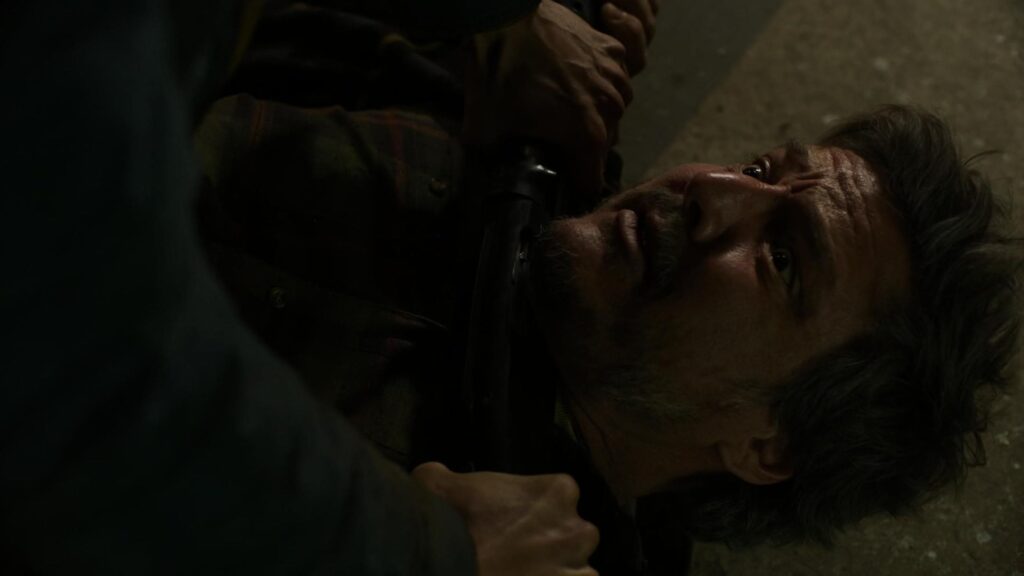
Episode 4 is a well-made and exciting episode of television. The action sequences are well-choreographed and suspenseful. The performances from Pedro Pascal and Bella Ramsey are also excellent.
However, the episode has been criticized by some for being too slow-paced and for not having enough character development. Additionally, some viewers have found the violence in the episode to be too gratuitous.
Despite these criticisms, I still enjoyed episode 4 of The Last of Us. I found the action sequences to be exciting and the performances to be excellent. I also thought that the episode did a good job of developing the relationship between Joel and Ellie.
Recommendation:
I would recommend episode 4 of The Last of Us to fans of the video game and to fans of action-oriented television in general. However, I would caution viewers that the episode contains some graphic violence.
If you are looking for an episode that focuses more on character development and less on action, then I would recommend skipping episode 4 and watching episode 5 instead.
Check out the latest Drama Movies.
